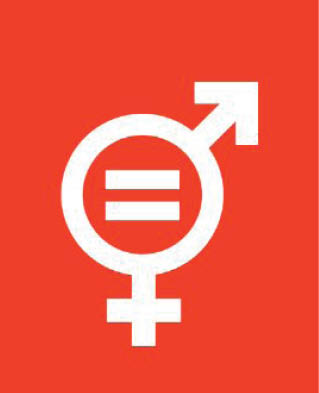Many of us have shared the intense frustration of our womenfolk who are manifestly excluded from the rungs of government in this country, particularly elective positions. I have heard A’isha Waziri Umar, a well-known barrister, banker and political activist, notably in her Jere Federal Constituency of Borno State, express these views at many fora.
Once more, we are at the threshold of selecting candidates for elections and I feel compelled to share with my readers a write-up she recently circulated hoping to prick our conscience to do what’s right. Please read on:
“This country needs to make sacrifices and adjustments to our style of leadership selection to include women in government. Gender inclusion begets economic empowerment. There is no gainsaying that Nigeria is greatly wasting a precious resource in the gross underutilisation and poor representation of women in governance and politics, i.e. playing with the half team when we can play a star-studded full team.
“As the 2023 elections approach, we must address the sizeable gender gaps that undermine women’s inclusion in governance. Current statistics have it that we have a paltry 11.2 per cent of women membership in the National Assembly (seven females in the Senate and 11 in the House of Representatives). The statistics become starker when you realise that among all the senators representing the North there is only one female (A’ishatu Dahiru Ahmed of Adamawa Central). In my opinion, this is very poor juxtaposing it with 479 members of the federal parliament.
“When there is gender balance in governance and leadership, the quality of life among the populace is greatly improved. Upon the involvement of women in governance, they succinctly capture the needs of respective families and will ensure that policies are developed to suit the needs of their respective communities.
“Women in power can be counted upon to mention issues others overlook, to support causes that others stoutly oppose, and make concerted efforts to put to end abuses that others accept. Many studies have shown that there would be no instrument more effective in promoting good governance than adequate empowerment of women. No other policy has the potential to reduce the child and maternal mortality rate than the conscious inclusiveness of women in governance.
“Several factors restrain women from actively participating in governance and politics in Nigeria. These include among others: insufficient resources; lack of viable information; disproportionate access to quality education; cultural barriers and plain discrimination against rural women. This, unfortunately, has turned women into docile, malleable beings, and easy to manipulate.
“Government has a great role to play in reversing these retrogressive practices and this can be achieved by implementing the right mechanisms, providing incentives to women, and encouraging them by reserving some elective political positions only for the female gender. These steps, I strongly believe will encourage massive participation and inclusion of women in politics.
“It goes without saying that when women are accorded their deserved, appropriate and acceptable position in governance, it will enable them to formulate and implement robust educational policies that will benefit the entire citizenry, especially the less fortunate ones in our society.
“The alarming rate of out-of-school children in our country is worrisome and needs to be reversed as an uneducated mind is susceptible to all manner of deceit and delusion.
“Having more women in our nation’s governance process and political landscape will tremendously boost our socio-economic development. How do we achieve this? Simply by systematic and representative inclusion of women in governance and politics. Research has it that when women are involved in peace processes and conflict resolution, the resulting agreement always stands the test of time and this agreement is well implemented to the letter.
“An International Peace Institute study of 182 signed peace agreements found that when women are involved in peace processes, there is a 35 per cent possibility that such peace agreement will last for over 20 years.
“History is replete with outstanding, female political leaders around the world that have proven their mettle in governance, thus becoming the cynosure of all eyes. They include Angela Merkel, the first woman to be elected as Chancellor in Germany and the third-longest Chancellor in Germany. Jacinda Arden, New Zealand’s current prime minister. There are also Sheikh Hasina Wazed, the longest-serving prime minister in the history of Bangladesh; Kamala Harris, currently serving as the first-ever female US Vice President; Magdalene Anderson, the Prime Minister of Sweden; Liberia’s Ellen Johnson Sirleaf, the first woman to be elected president of an African country; and Nancy Pelosi, the Speaker of the United States House of Representatives.
“Indeed, the list is endless. We can also replicate these giant strides in our clime as our democracy is still young. Therefore, it is expedient and politically healthy to give equal representation in elective and appointive positions. It is only a robust women’s representation in politics that will increase creativity, and originality and will help to diversify the pool of talents, skills, and abilities.
“In conclusion, I make bold to restate that to build strong, robust and virile governance, women must not only be encouraged but empowered and my call with a very loud voice is for all hands (the political parties, all arms of government, the clergy, the NGOs, and the women themselves) to be on deck to make this a reality.”
Aisha Waziri Umar, LLB, LL.M, PGD (Oxford) Barrister, Solicitor & Public Notary

 Join Daily Trust WhatsApp Community For Quick Access To News and Happenings Around You.
Join Daily Trust WhatsApp Community For Quick Access To News and Happenings Around You.


